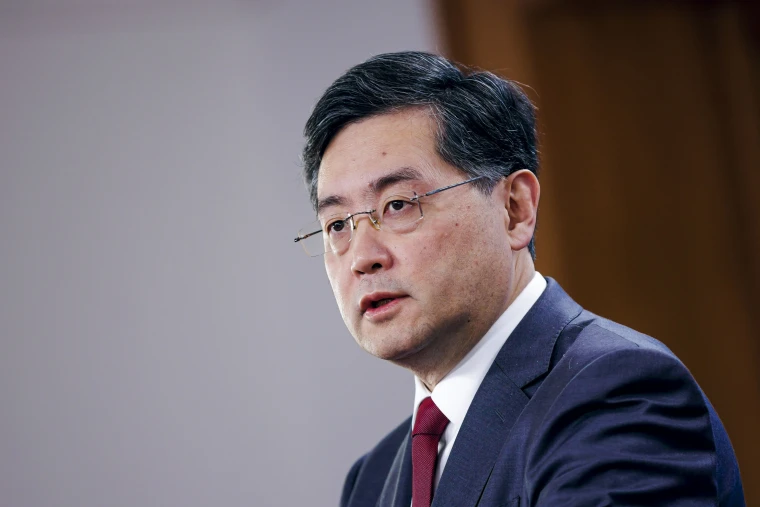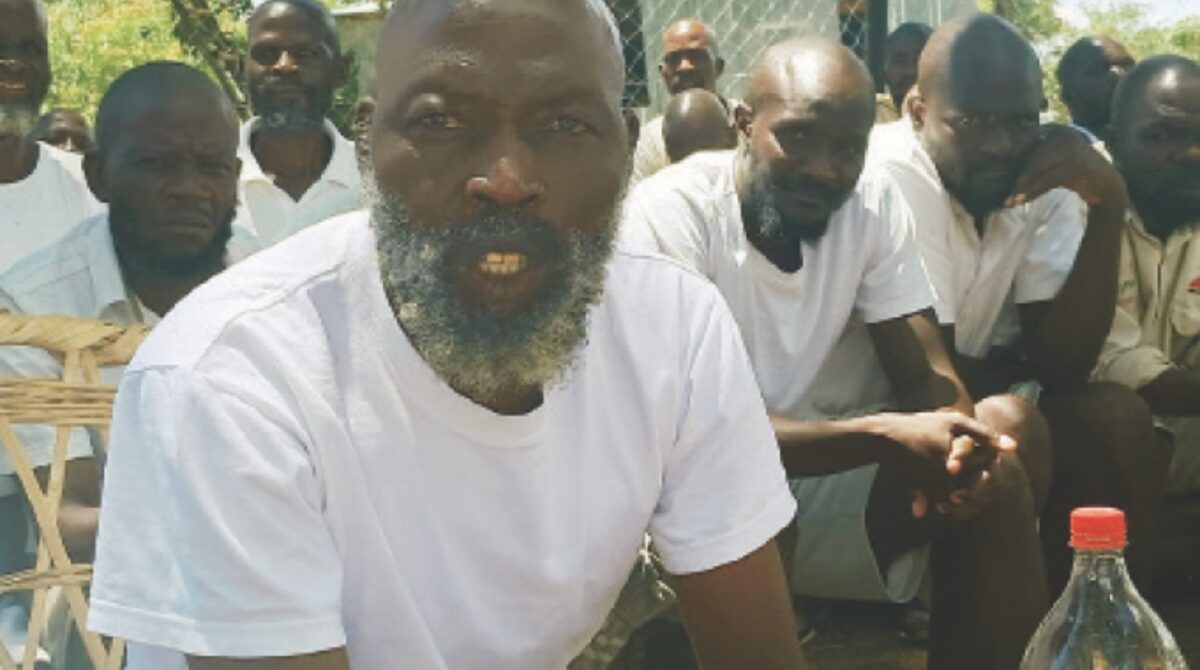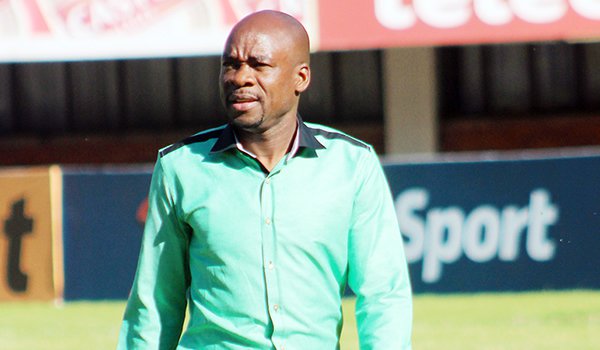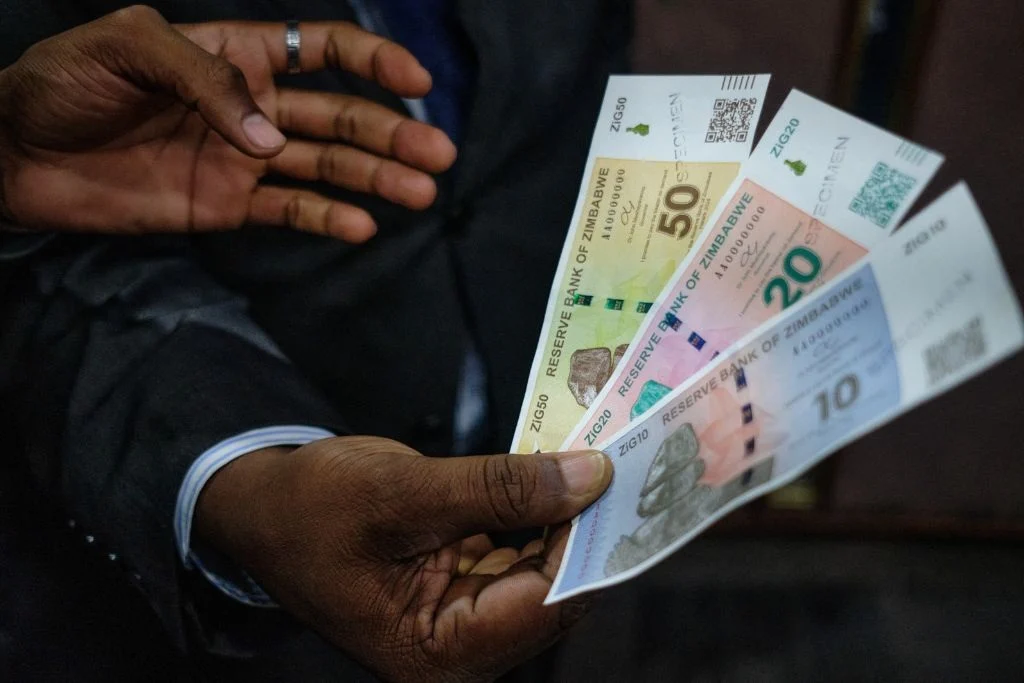CHINA, Beijing — China removed its sometimes outspoken foreign minister on Tuesday and replaced him with his predecessor at an unusually scheduled meeting, a move that has fueled rumors about what might be going on with the nation’s Communist Party elite.
The step to remove Qin Gang after less than a year and replace him with Wang Yi doesn’t appear to signal any significant change in the hard-edged foreign policy adopted in recent years by leader Xi Jinping, who oversees the world’s second-largest economy — and a nation that is the primary US rival for international influence. US officials said as much about Qin’s departure after learning of the move.
In its announcement on the national evening news, state broadcaster CCTV gave no reason for Qin’s removal. Within minutes, all mentions and photos of him had been removed from the Foreign Ministry’s website.
However, he was still referred to on the central government’s main site as a Cabinet-level state councilor, a possible sign that his political career wasn’t entirely over.
He had disappeared from public view almost a month ago, and the Foreign Ministry has provided no information about his status.
That is in keeping with the ruling Communist Party’s standard approach to personnel matters within a highly opaque political system where the media and free speech are severely restricted.
The party rarely reveals its process or its way of thinking when it makes a move such as this.
The ministry made no comment at its daily briefing on Tuesday.
The move comes amid a foreign backlash against China’s increasingly aggressive foreign policy, of which Qin was a chief proponent. That now includes Chinese political and economic support for Russia in its war on Ukraine, the signing of a secretive security pact with the Solomon Islands that could give it a military foothold in the South Pacific and the rejection of demands for more information about the origins of the COVID-19 pandemic that began in China in late 2019.
Adding to the mystery around Qin’s removal: It was approved at an unusually scheduled meeting of the Standing Committee of China’s rubber-stamp legislature, the National People’s Congress, which normally gathers at the end of the month.
That produced speculation about what might be going on behind the scenes — and whether it was related to Qin directly and rumors that have swirled on Chinese websites about his personal life, to policy overall or to both.
Qin, who comes from a powerful family of party luminaries, last appeared on camera at a meeting with Sri Lanka’s foreign minister in Beijing on June 25.
The Foreign Ministry briefly chalked his absence up to bad health, but — in another tactic sometimes used by the party and government — scrubbed the reference from its official news conference transcript and has said since that it had no information.
Wang, Qin’s predecessor and now replacement, had previously served as China’s top diplomat in his capacity as head of the party’s office of foreign affairs.
Without other strong contenders, it appeared likely he would retain that position at least for the short term.
He was in South Africa on Tuesday for diplomatic meetings and was due in Turkey on Wednesday.
The shakeup in China’s diplomatic lineup does not necessarily indicate a changed foreign policy, including continued support for Russia’s war against Ukraine.
However, it follows U.S. Secretary of State Antony Blinken’s trip to Beijing in a bid to revive a relationship riven over trade, human rights, technology, Taiwan and China’s territorial claims in the South China Sea.
Earlier in his career, Qin had served as ministry spokesperson. During that time, he gained a reputation for criticism of the West and rejection of all accusations against China.
That came to be known as “wolf warrior” diplomacy, after the name of a nationalistic movie franchise.
He later headed the ministry’s protocol department, during which he reportedly came to the attention of Xi, the head of state and Communist Party chief.
Qin was next appointed ambassador to Washington from July 2021 to January of this year, a relatively short term that presaged his rise to the head of the Chinese diplomatic service.
“Qin Gang’s fall from grace was as unexpected and abrupt as his elevation over the heads of many experienced diplomats,” said Danny Russel, who was the top U.S. diplomat for Asia during the Obama administration and is currently vice president of the Asia Society Policy Institute in New York. “Since both moves are attributed to China’s leader, this episode will surely be seen as an embarrassing lapse in judgment at the top.”
The U.S. has launched a flurry of diplomacy with China over recent weeks in hopes of reviving relations that have sunk to a historic low. In Washington on Tuesday, a U.S. official who spoke on condition of anonymity to discuss the Biden administration’s internal thinking said he does not believe Qin’s ouster will have a significant impact. Later in the day, the administration said the move would not affect any U.S. intent to promote high-level dialogue with the Chinese.
“It is up to China to decide who their foreign minister is,” Vedant Patel, State Department deputy spokesman said Tuesday. “We will continue to engage with Foreign Minister Wang Yi and other Chinese officials and continue to believe that keeping lines of communication open are incredibly important.”
That has most recently been reflected in visits to Beijing by Blinken, Treasury Secretary Janet Yellen and climate envoy John Kerry, who met with officials, including Premier Li Qiang, last week. Centenarian former top diplomat Henry Kissinger, revered in China for helping break the ice in relations in the early 1970s, also made the trip and was granted a sit-down with Xi.
China has an opaque political system abetted by strict controls over the media and civil society, making it difficult to gauge how Chinese leaders see the relationship at this point.
Xi is the most authoritarian and nationalistic party head in decades and has taken a hard line on claims to sovereignty over the South China Sea and threatened to attack the self-governing island democracy of Taiwan. He rejects foreign criticism of China’s crackdown on political and cultural expression against Muslim and Buddhist minorities and in the former British colony of Hong Kong.
During his time as spokesperson and minister, Qin defended those positions in terms that sometimes verged on the strident, saying in March that, “If the United States does not hit the brake, but continues to speed down the wrong path, no amount of guardrails can prevent derailing and there surely will be conflict and confrontation.”
“Such competition is a reckless gamble, with the stakes being the fundamental interests of the two peoples and even the future of humanity,” Qin said.
However, a window of opportunity remains open, particularly if Xi makes a state visit to the U.S. later this year, when he is expected to attend the Asia-Pacific Economic Cooperation forum summit in San Francisco, said Wang Yiwei, director of the Institute of International Affairs at Beijing’s Renmin University.
“If the window of opportunity could be grasped to pull China-U.S. relations back on track, the relations might not spin out of control next year,” when the U.S. will mainly focused on the election season, Wang said.
Conflicts have sometimes overshadowed the massive economic and trade relationship, but the sides can still work together on relatively politically neutral issues such as climate change, Wang said.
Both countries are seeking for a way to manage “”the most important and complicated bilateral relations in the world,” said Zhu Feng, dean of the School of International Studies at prestigious Nanjing University in eastern China.















